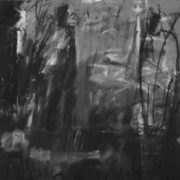The ongoing pandemic has also started a massive propaganda war, which could spin out of control with unfathomable consequences. Some Western media first believed the spread of the epidemic in China would become a “Chernobyl moment” for Beijing, referring to the 1986 nuclear incident that triggered a deep crisis in the USSR.
Yet in about a month Beijing turned the tables, proving that its system could bring the situation under control and that it was better than Western democracies at fighting the disease. Moreover, Beijing began circulating stories that the virus was produced in a U.S. military laboratory.
As President Donald Trump protested against the accusation and retorted by calling the epidemic the “Chinese virus,” some media close to Beijing moved the target by printing articles that alleged an Italian origin of the virus.
And as foreign countries closed their borders to China at the onset of the epidemic in Wuhan, now that China has got the disease under control domestically, starting March 28th, it closes its borders to all foreigners for fear that the disease will return.
It is time we change tack.
The epidemic started in Wuhan at least in December by official admission. There were thousands of people infected and dead by January and February. This widespread phenomenon arrived on that scale in Italy in late March.
Socially, the issue is not who and where the first patient came from, but where it first became an epidemic and what made the epidemic grow: China’s structural problems of primitive rural life and modern life being next to each other, and China’s slow ineffective internal information system killing accurate reports.
Deflecting blame is understandable in the circumstances, but it backfires.
Nobody is going to believe realistically that the disease did not originate in China. Now is a time to work together to fight the pandemic and drop the mutual accusations. Western countries have their own problems now in dealing with the epidemic, and China had its own problems in creating the conditions for the epidemic to first thrive unabated.
At the end of all this, we need to have soul-searching moments.
If democratic countries become internally less tolerant and more aggressive because they enforced strict rules to fight the disease and keep them once the epidemic is over, then friction with China will increase. If at the end of this China becomes more liberal and democratic, friction with the USA will decrease.
What is the best path for China? What for the rest of the world now facing the spread of the disease?
The plague is an invisible enemy that changes the normal way of life, being together, meeting people, dining all around one table, in a mistake, in possible death, in sufferance.
All that for the human being is joy, and most basic need, hugging friends, walking around, love, friendship, is turned into source of death. Even crying the dead, praying together, departing from our dear ones, becomes impossible. What we know it is good, being together, becomes bad, and what we now it is bad for us and for everybody, being alone, becomes good. The world we know is upside down.
Nothing like plague is so unhuman, against every fiber of our body and soul, not even war. A fear deep and subtler than anything haunts our dreams, walks in every moment of our solitary lives.
It is an extraordinary moment when politics will not and cannot stop or even pause, but it should help us become better human being, bigger leaders and politicians, be reborn. Because if we fail it, tomorrow might be worse than the plague.






This widespread phenomenon arrived on that scale in Italy in late March. but we have evidences that it started in January